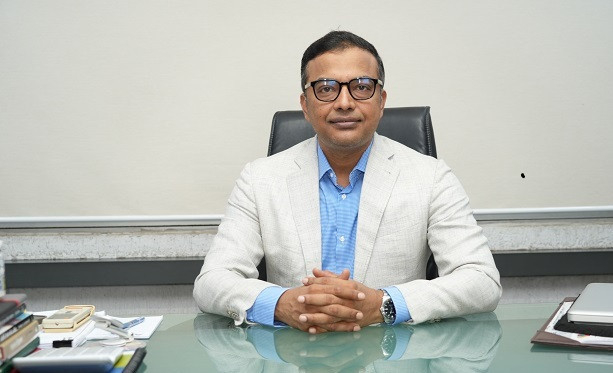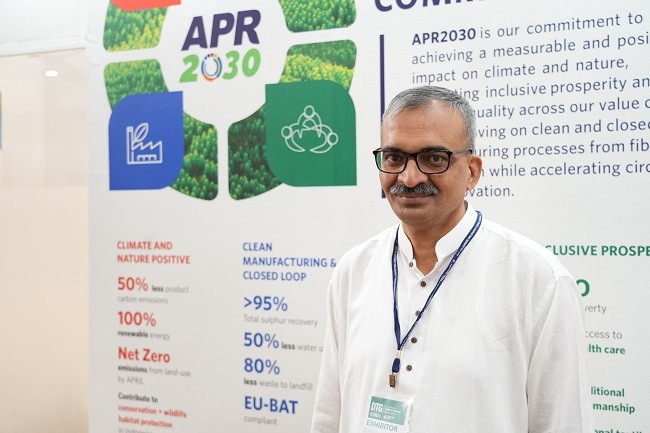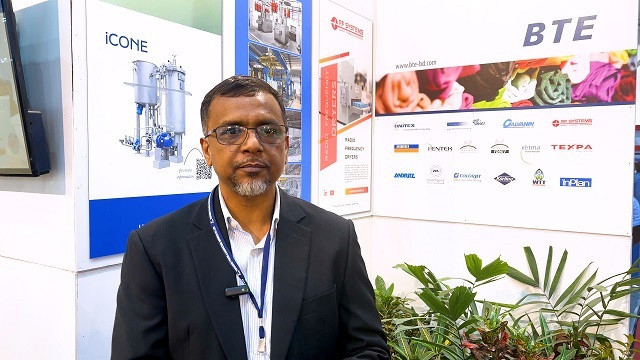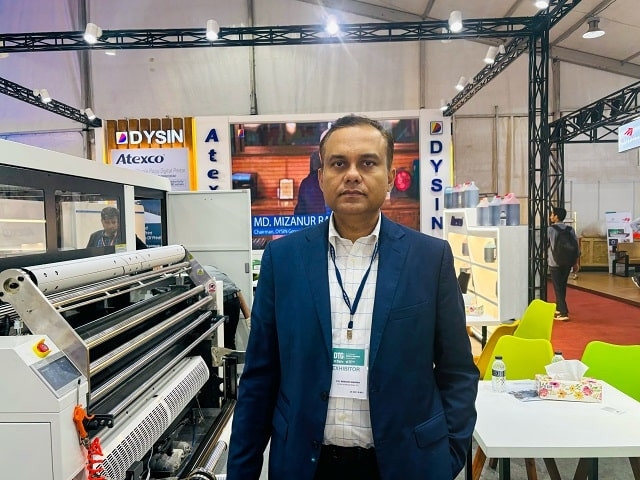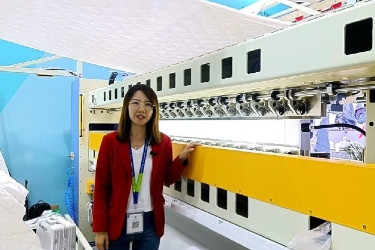Noman Textiles' approach to woven fabric innovation and import substitution
Published At: April 16, 2025Bangladesh's textile and apparel industry faces a significant challenge in its reliance on imported woven fabrics. To explore the details of this vital sector and identify potential pathways towards greater self-sufficiency, Textile Today had the privilege of speaking with Jahidul Hoque Majumder, General Manager of Noman Textiles Mills Limited. Noman Textiles, a vital arm of the Noman Group – often regarded as a comprehensive resource for the nation's textile needs – places a strong emphasis on weaving capabilities across its extensive network of 36 factories. The group employs around 80,000 people, has been honored with the Highest Exporter Award across all sectors for 10 consecutive years, and contributes approximately 2.5% to the country’s overall exports.
In this insightful discussion, Majumder sheds light on Noman Textiles' current product portfolio, the underlying reasons for Bangladesh's dependence on imported woven materials, and the critical strategies required to strengthen the local weaving industry for future growth and reduced reliance on external sources.
Textile Today: Could you provide a brief overview of Noman Textiles and its current product range?
Jahidul Hoque Majumder: For Noman Textiles, a key component of Noman Group, weaving is a primary area of focus. Our expansive weaving facility achieves a daily output of 100,000 yards. Driven by a robust R&D team, we specialize in producing a broad spectrum of woven fabrics, including stretchable spandex. Our investment in approximately 50% of dobby looms allows us to create a variety of decorative fabric designs. Moreover, Noman Textiles excels in blended fabrics, offering options such as cotton-polyester, viscose, linen, and Tencel, in addition to our dedicated 100% polyester weaving capabilities for man-made textiles.
Textile Today: Given Bangladesh's significant reliance on imported woven fabrics, what strategies can be adopted to reduce this dependency and strengthen our local weaving industry?
Jahidul Hoque Majumder: The fact that Bangladesh imports 60% to 70% of its woven fabrics represents a missed opportunity. While our woven garment exports are growing (4.85% to $4.07 billion in FY 2023-2024), our roughly 800 domestic weaving mills are unable to meet the demand, resulting in over $2 billion in annual imports. To reverse this trend and fully utilize our export potential, a concerted effort to develop our existing weaving mills and establish new ones, equipped with modern technology and a skilled workforce, is essential.
Textile Today: What are the primary reasons behind the technological drawbacks in Bangladesh's weaving industry, and what key actions are necessary to overcome these limitations?
Jahidul Hoque Majumder: The initial investment costs for advanced, high-speed, and automated weaving technologies are substantial, and many local mill owners, particularly smaller ones, lack the financial capacity or access to affordable financing for such upgrades. Also, operating and maintaining modern weaving machinery requires a skilled workforce.
A significant portion of existing weaving mills in Bangladesh operate with outdated machinery. To cater to the country’s woven fabrics export demand, adopting cutting-edge weaving technologies are paramount.
Especially, a significant portion of Bangladesh’s woven fabric imports consists of polyester fabrics. Given the global demand for durable, versatile, and often cost-effective polyester-based textiles in various apparel and industrial applications.
Textile Today: With gas and energy prices on the rise, how can the textile sector optimize resource utilization to remain competitive and sustainable?
Jahidul Hoque Majumder: The woven sector is a power-oriented segment. Whereas the gas and energy prices have skyrocketed. This has become one of the biggest challenges for the woven sector. For instance, at Noman Textiles, previously our per-yard electricity cost was BDT 5 to 5.5, now it has climbed to TK10 to TK10.5.
So, we are actively pursuing operational excellence as a vital policy to minimize costs, especially in resource-intensive areas. Like, saving electricity in various ways, as the weaving floor environment – RH and temperature – needs to be controlled, so we are controlling temperature with RH. Thus, we are not using chillers anymore. Which reduced the energy cost a bit. Side by side, we are utilizing the exhaust gas emanating from the power generator to run boilers.
Not to mention, we are running our looms at maximum speed to increase productivity and cut costs.
Textile Today: Noman Textiles is recognized as a leading player in the industry. What best practices have contributed to its success and operational excellence?
Jahidul Hoque Majumder: For us, our best practices include saving resources, wastage reduction and increasing productivity. To put, we do lean management, we have an IE (Industrial Engineering) team to look after the matter. We implement 5S, and all the departments and sectors have their own SOPs. Most crucially, we provide continuous training to all our people to build awareness.
Recycling and reusing are key elements at Noman Textiles Mills Limited to reduce wastage. Pre- and post-production waste materials are recycled and reused to boost sustainable fabrics.
What is your vision for Noman Textiles over the next five years?
Jahidul Hoque Majumder: We are strongly focused on making Noman Group a one-stop solution for buyers. We are actively exploring ways to expand our product range and bring in more diversified products. There is no alternative to increasing our product range if we want to reduce dependency on importers. To achieve this, our future target is to minimize import dependence by making the necessary technological modifications and adopting automation where required. Specifically, we aim to reduce the current import dependency from 65% to 30% and strengthen our capacity to supply local RMG factories with the necessary fabrics they require.
Noman Textiles Weaving Weaving technology Bangladesh weaving import data Jahidul Hoque Majumder Noman Group